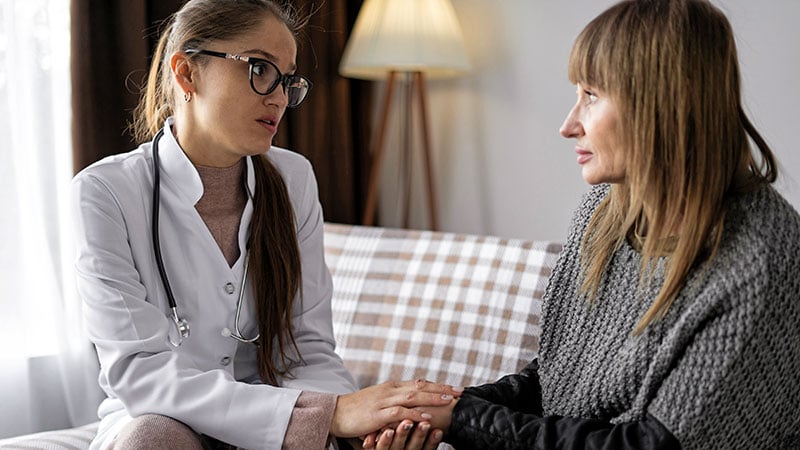TOPLINE:
Intensive home treatment after a psychiatric crisis is linked to 18% lower readmission rates over 12 months than standard psychiatric inpatient treatment, a new study shows.
METHODOLOGY:
- Researchers conducted a quasi-experimental, nonrandomized trial from 2020 to 2022 across 10 psychiatric hospitals in Germany.
- They compared intensive home treatment with inpatient treatment for 400 participants (mean age, 45.5 years; 65% women) with an acute mental health crisis and a stable residence, no child welfare risk, and no acute suicidality or severe aggression requiring hospitalization.
- Intensive home treatment followed established psychiatric inpatient care guidelines and included at least one psychiatrist, a nurse, and either a psychologist, social worker, or occupational or physiotherapist.
- Mean treatment duration was 37 days for the home treatment group, which received daily visits, and 28 days for the group receiving standard psychiatric inpatient care.
- The primary outcome was the inpatient readmission rate at the 12-month follow-up; secondary outcomes included the combined readmission rate to any psychiatric service, total inpatient days, job integration, quality of life, psychosocial functioning, symptom severity, and recovery within 12 months.
TAKEAWAY:
- Patients receiving the home treatment had significantly lower hospital readmission rates than those receiving inpatient treatment (31% vs 50%; P
- Combined readmission rates were also lower in the home treatment vs inpatient groups (45% vs 59%; P = .01).
- Home treatment participants spent fewer inpatient days in the study center during the follow-up (mean difference, −6.82 days; P
- There were no significant between-group differences for job integration, quality of life, psychosocial functioning, symptom severity, or recovery at the 12-month follow-up.
IN PRACTICE:
“This nonrandomized clinical trial found that patients receiving [intensive home treatment] had a lower likelihood of utilizing hospital-based psychiatric services,” suggesting that it is a viable alternative to inpatient treatment, the investigators wrote.
SOURCE:
The study was led by Andreas Bechdolf, MD, Vivantes Klinikum Am Urban, Berlin, Germany. It was published online on November 15 in JAMA Network Open.
LIMITATIONS:
As intensive home treatment was part of routine care, randomization was not feasible, and the study’s 12-month follow-up limited the ability to assess its long-term effects. The findings were also restricted by exclusion criteria, such as applicability for individuals requiring immediate hospitalization for suicidality, self-harm risk, or danger to others. Additionally, shifts in mental health service delivery during the COVID-19 pandemic may have influenced the results.
DISCLOSURES:
The research received funding from the innovation fund of the Federal Joint Committee (Gemeinsamer Bundesausschuss). Bechdolf reported receiving personal fees from various sources outside the submitted work, which are listed in the original article.
This article was created using several editorial tools, including AI, as part of the process. Human editors reviewed this content before publication.
Source link : https://www.medscape.com/viewarticle/intensive-psychiatric-home-care-may-cut-hospital-readmission-2025a100002g?src=rss
Author :
Publish date : 2025-01-03 06:23:29
Copyright for syndicated content belongs to the linked Source.
